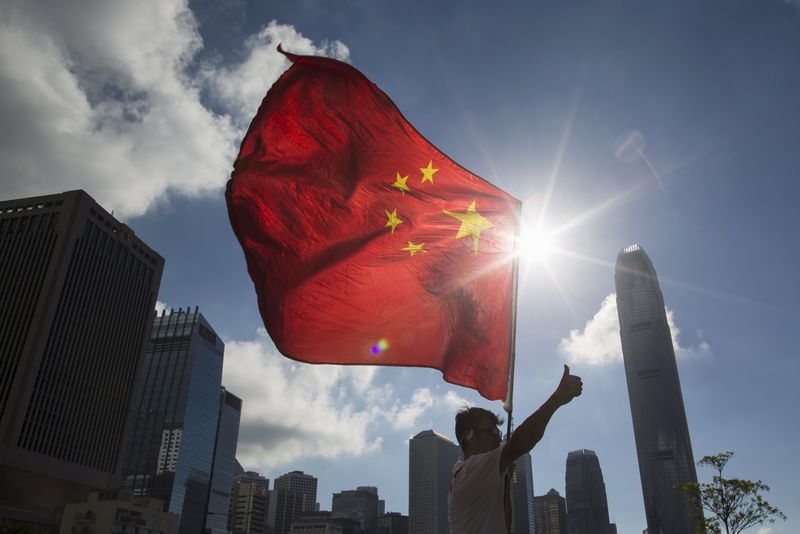(Bloomberg) -- Two months after China shocked investors with the first government seizure of a bank in two decades, market confidence in the nation’s smaller lenders has yet to fully recover.
That may be just what the country needs.
When it took control of Baoshang Bank Co. on May 24 and imposed losses on some creditors, China’s government upended the long-held assumption that it would always provide banks with a 100% backstop.
The result has been a wholesale repricing of risk for all but the largest Chinese lenders, a development that analysts say was long overdue in a country rife with moral hazard. While the upheaval has underscored the fragility of some smaller banks and adds to short-term headwinds buffeting the economy, it may ultimately put China’s $40 trillion banking system on a more sustainable path by forcing markets to differentiate between weak and strong lenders.
“The long-term implications are actually very positive,” said Jason Bedford, a Hong Kong-based analyst at UBS Group AG who was among the first to highlight Baoshang’s troubles in 2017.
Before the takeover, funding costs for small- and mid-sized Chinese banks were remarkably similar to those of blue-chip names like Industrial & Commercial Bank of China Ltd., the world’s largest lender by assets.
The rationale for a lack of differentiation was simple: When times got tough, authorities would always make sure that even the smallest banks fulfilled their obligations to depositors and other creditors. That assumption kept money flowing to banks -- and by extension the Chinese economy -- even as critics warned that it was fueling excessive risk-taking and a dangerous buildup of bad loans.
Now -- even though Baoshang has reportedly made good on almost all its obligations -- a government backstop is seen as no sure thing.
“The corporate bond market is currently reducing the probability of an implicit government guarantee on all liabilities of small banks,” Kelvin Pang, a credit strategist at Morgan Stanley (NYSE:MS) in Hong Kong, wrote in a report last month. “We continue to believe that government support for banks (including small banks) remains strong, but it’s using a differentiated approach.”
The China Banking and Insurance Regulatory Commission didn’t respond to a fax seeking comment.
It’s hard to say if this is the outcome authorities anticipated. The Baoshang takeover was complicated by the fact that the bank was part of Xiao Jianhua’s Tomorrow Group, an investment conglomerate that’s under investigation in China. Regulators were at one point arranging for a state-owned firm to buy a stake in Baoshang, before realizing that the lender’s financial situation was more precarious than they thought, people familiar with the matter said in May.
A lack of detail in the government’s early communications on the takeover gave some investors the impression that it was hastily arranged. Market participants were also left guessing about the extent of losses facing Baoshang creditors, leading some to dramatically cut their exposure to other smaller lenders.
In the interbank funding market -- a critical piece of China’s financial plumbing –- some strong banks began rejecting collateral from all but the most creditworthy counterparties. Repurchase volume tumbled by 43% in a week, according to data cited by JPMorgan Chase & Co (NYSE:JPM).
Funding stress was also apparent in the market for negotiable certificates of deposit, where the interest-rate gap between lower-rated and AAA banks soared to the highest level since Bloomberg began compiling the data in 2015.
Authorities tried to ease concerns about a sudden pullback of government support, highlighting Baoshang’s links with Tomorrow Group and portraying the case as unique. They also pumped cash into the nation’s money markets to bring down borrowing costs, injecting a net 250 billion yuan ($36 billion) in a single day on May 29.
Other assistance was targeted at individual banks. To help one mid-sized lender sell bonds in June, a state-owned insurer struck a rare agreement to provide credit protection for the issuance.
As for Baoshang, officials appear to have imposed much less draconian haircuts on creditors than first feared. About 99.98% of the bank’s corporate creditors received full principal and interest payments, China’s central bank said in June. All of Baoshang’s individual savers were made whole.
Even so, creditors aren’t taking any chances. The yield gap between low- and top-rated NCDs, a key measure of the market’s wariness toward smaller Chinese banks, is still more than four times wider than it was before the Baoshang seizure.
“Although the actual loss for creditors is negligible, this is the first time in almost 20 years that a bank default in China almost became reality,” Helen Huang, a fixed-income analyst at HSBC Holdings Plc (LON:HSBA) in Hong Kong, wrote in a July 9 note. “The takeover of Baoshang Bank can be seen a big step towards more credit differentiation.”
